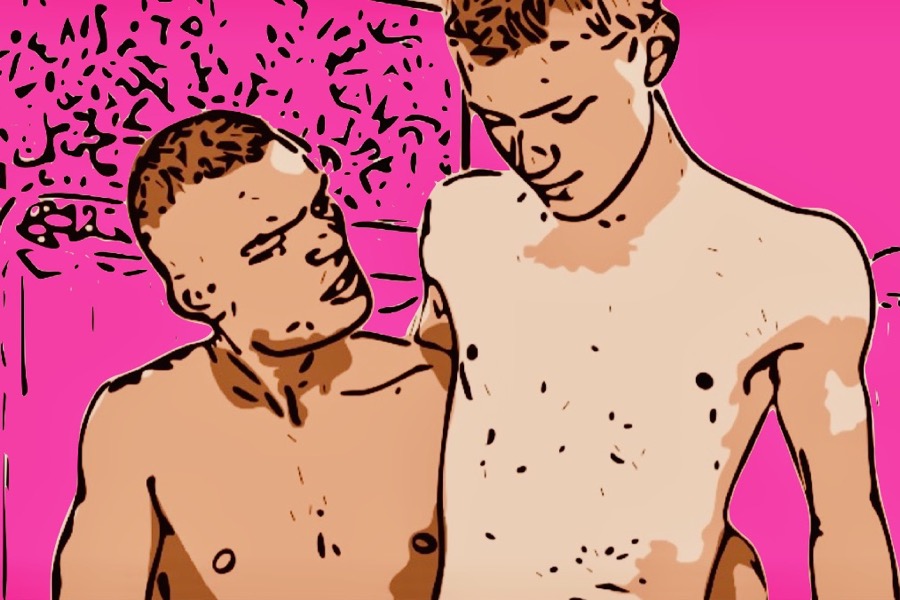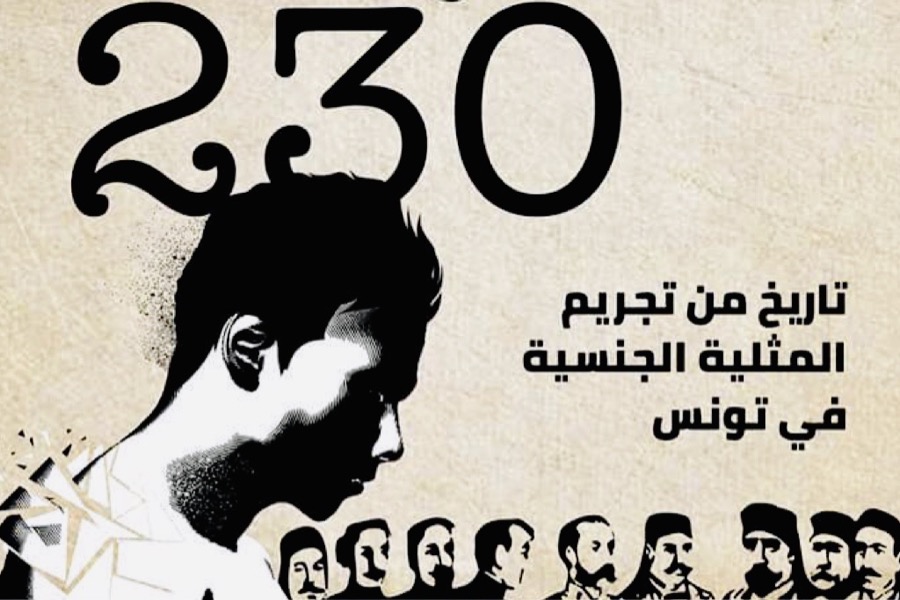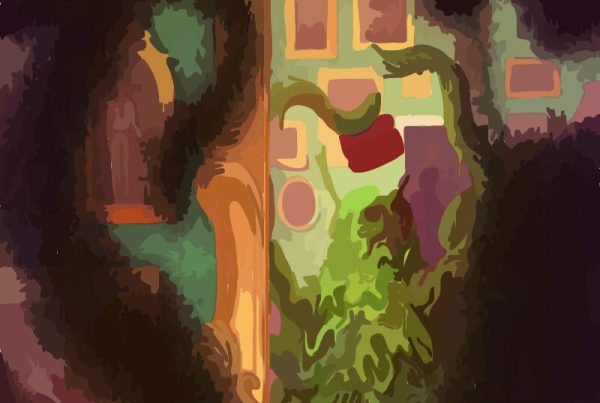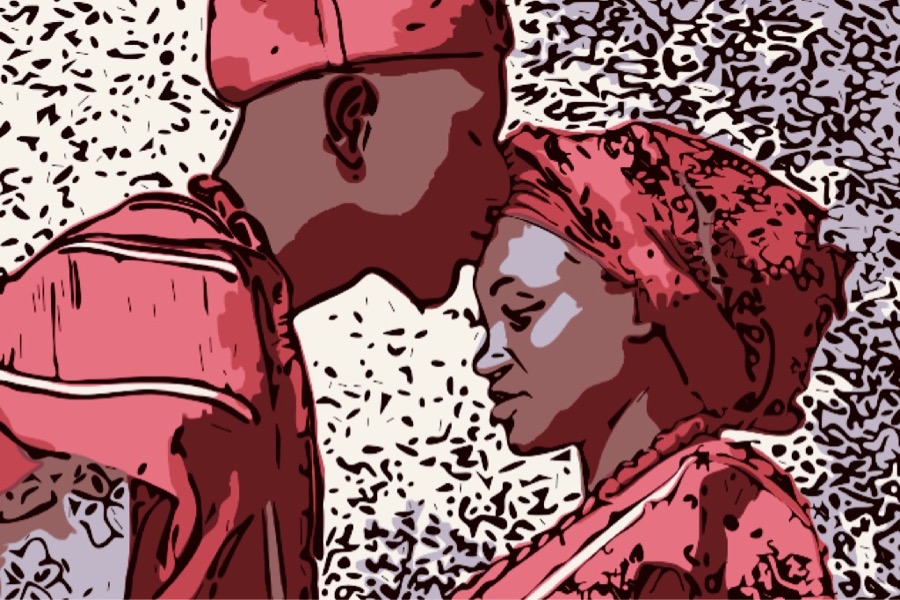The Tunisian LGBTQIA community (lesbian, gay, bisexual, trans, queer, intersex and asexual) has good reasons to be happy given the victories of the past few days (there has been a positive sentence to protect the existence of a rainbow association and a prize given to the president of Damj). Yet it should not be forgotten that, despite a remarkably advanced post-revolutionary constitution, article 230 of the penal code continues to allow police and judges to investigate and condemn sexual minorities in the country. It continues to be used to intimidate, blackmail, and punish homosexuals or people identifying as such.
A fundamental essay
An interesting short essay by Ramy Khouili and Daniel Levine-Spound (available in Arabic, French and English) is dedicated to the subject: “Article 230 – A History of the Criminalization of Homosexuality in Tunisia.” The printed volume has been distributed for free since the end of March, while starting in June it will be also available for download.
The book was presented for the first time in Tunisia during an LGBTQIA event and then on April 19th at the five day initiative: “Couleurs d’Avril : Dialogue Entre les Deux Rives” (April Colours : dialogue between the two shores) designed to “defend individual freedoms and as a support for the LGBTQ++ people’s rights associations” at the capital auditorium of the French cultural center where over 120 people were present.
Khouli, one of the two authors was present (Levine-Spound lives in the United States and was unable to attend). He was by far the most interesting and appreciated speaker: during his brief but incisive talks, he recounted -with some unexpected curiosity– how the penal code article originated and why it still persists in Tunisia even eight years after the revolution (which in 2015 brought a new constitution) making it a clear contrast.
One article, two versions
It is worth mentioning that Article 230 is not one “simple offence” of the penal code: it is two. The original text, written in French by the commission created in 1913, does not speak of homosexuality but of sodomy, without specifying whether the act (for which a penalty of three years is prescribed) is committed by people of the same sex or not. The Arabic version -which was supposed to be purely a translation- punishes male (لواط, liwat) and female homosexuality (مساحقة, musahaqa) instead.
Having made this clarification, it should be noted that until then Tunisian law did not provide for any discrimination against homosexuals (not even for “sodomites”) and that the constitution promulgated by Bey Muhammad III Al-Sadiq in 1861 (the Arab world’s first constitution) included extremely liberal rules: “Equality before the law, regardless of residence, social position, and religion for all Tunisians.“

Where’s the article coming from?
The genesis of the article that criminalises homosexuality and sodomy is officially unknown but the authors have clearly outlined the scenario for the commission set up by the French protectorate (which included six French resident representatives, two Tunisians, one Hanafi and one Maliki judge (two interpretative schools of the Islamic legal-religious system).
Most likely, the amendment in the code is owed on one hand to the desire to “respect the local traditions” and on the other to align it with the Thai code, which was written with the help of the Frenchman Georges Padoux, who had previously operated in Tunisia and had maintained contacts with some diplomat members of the commission.
Moreover, the French wanted to prevent their army from being infected by these “local perversions” (another nightmare was prostitution) and became a prey to “exorbitant and aberrant sexuality” that the colonial leaders attributed to the impact of the suffocating African heat on men and women libido (sic!).
Today’s responsibility
On one hand, it is clear that article 230 is a colonial product – similar to the one left as a legacy by the English colonizers – yet we must concede that judges and police have embraced it, and embracing a normative that allows them a wide possibility of manipulation. In fact, until 2011 there were no statistics on how many people have been arrested and convicted on its basis. Article 230 continues to be invoked by the police and used by the magistrates even after Tunisia has embarked on the path of democratization; the only Arab spring that continue to sprout and flourish.
Michele Benini
translation by Barbara Burgio
©2019 Il Grande Colibrì
photo: Il Grande Colibrì




